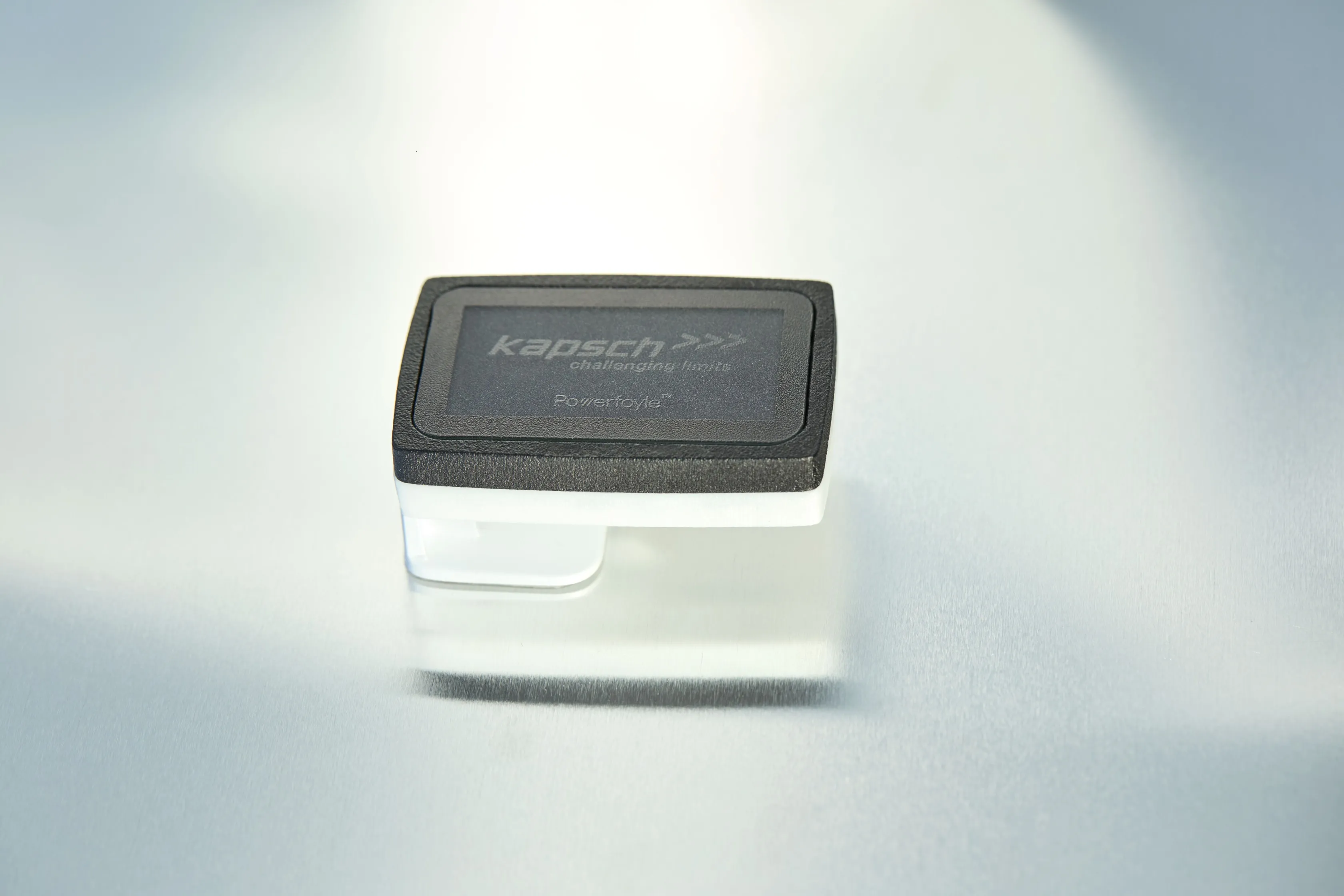
Kapsch TrafficCom has introduced Elumian, which it says is the world’s first light-powered tolling transponder that uses any light source, not just the sun’s rays.
A tolling transponder is a small electronic device placed in vehicles to facilitate automatic wireless toll payment on roads, bridges and tunnels.
Elumian harnesses energy from any light source - whether it be natural, ambient or artificial - to provide continuous charging to its internal battery.
The company says that Elumian represents a “breakthrough in sustainability”. It is powered by Powerfoyle technology developed by Swedish partner Exeger. Kapsch TrafficCom is the exclusive vendor for Powerfoyle in the tolling transponder sector.
The lifetime of an Elumian transponder is extended since it does not have to rely on direct sunlight but harvests regular ambient light as well as artificial light to charge its battery. This flexibility also enhances resource efficiency, making it a more sustainable choice for tolling systems globally.
“Elumian represents a fundamental shift in how we approach sustainability within our industry,” said Alfredo Escriba, chief technical officer at Kapsch TrafficCom, based in Vienna, Austria. “With its extended lifespan and reduced need for replacements, Elumian helps our customers make more environmentally-responsible decisions without compromising on performance or quality.”
The Elumian transponder, officially called the TRP-4010-40E, is an evolution of Kapsch TrafficCom’s TRP-4010 model. Its plug-and-play installation offers ease of use while maintaining performance. The core technology, Exeger’s patented Powerfoyle solar cell, is a flexible, durable material that efficiently converts light to energy across a broader spectrum than traditional solar cells, making it more efficient in real-life conditions.
The firm says Powerfoyle is responsibly sourced, made of abundantly available material and produced in Sweden, using 100% renewable electricity and emitting no toxic emissions, further aligning Elumian with sustainability goals.
The potential for growth in this vast market is immense, noted Georgios Foufas, chief commercial officer at Exeger.
“With the introduction of Elumian, we are together [with Kapsch TrafficCom] taking a significant step towards a more sustainable future by prolonging battery life and minimising the need for battery changes," he said.
Kapsch TrafficCom says that Elumian reduces distribution and disposal costs compared to conventional transponders, setting a new benchmark for sustainable practices in the ITS industry.







